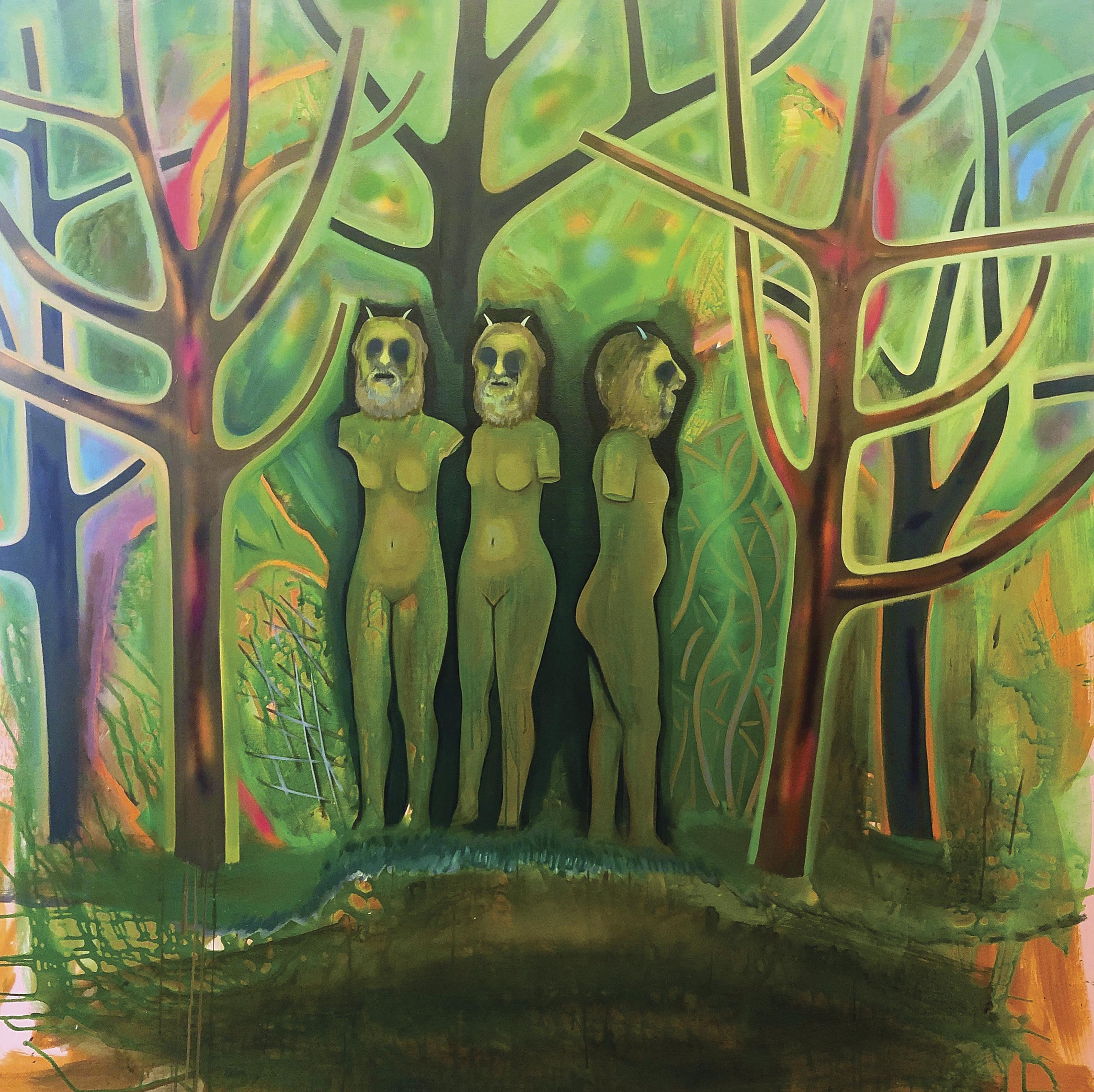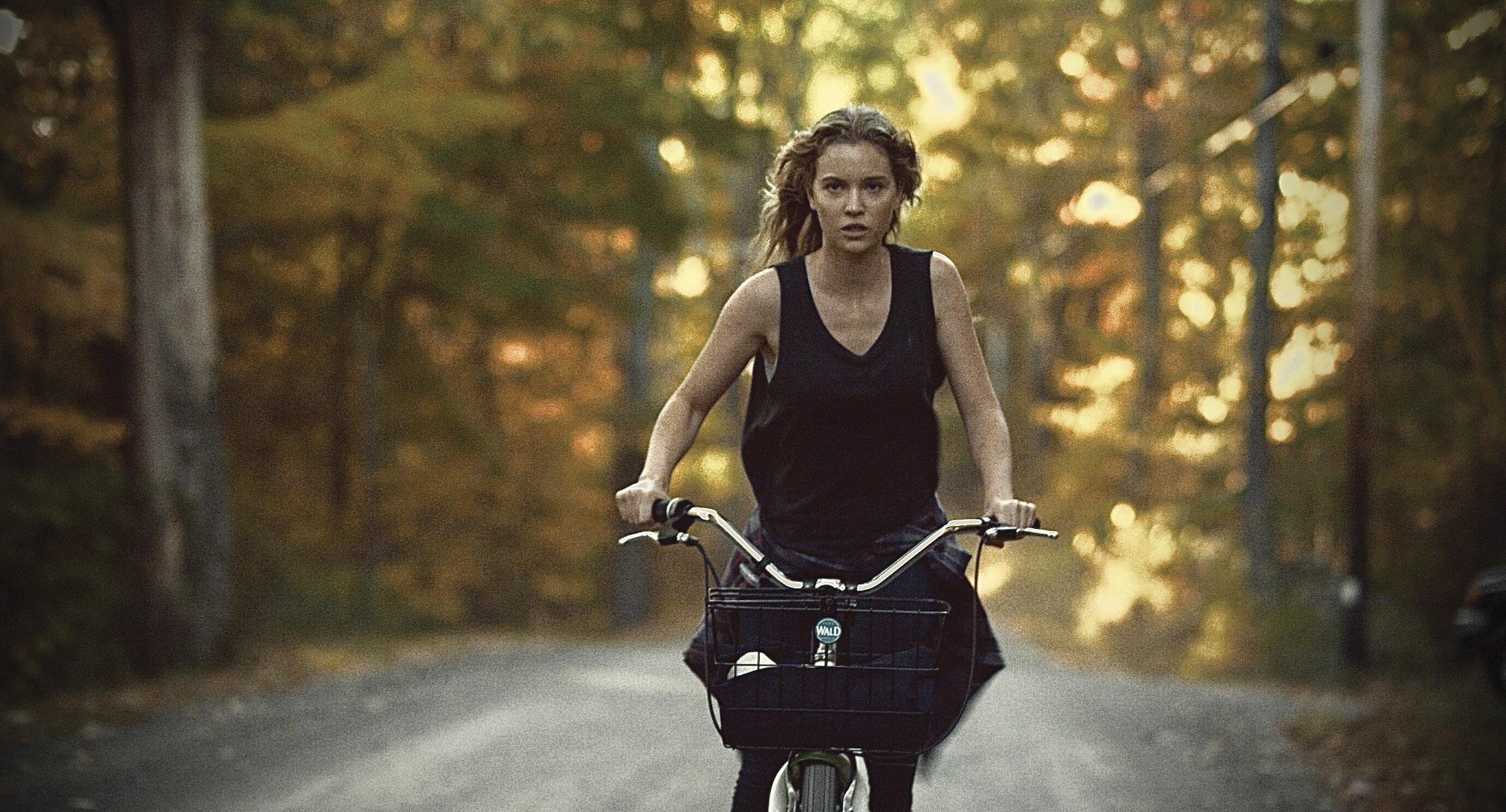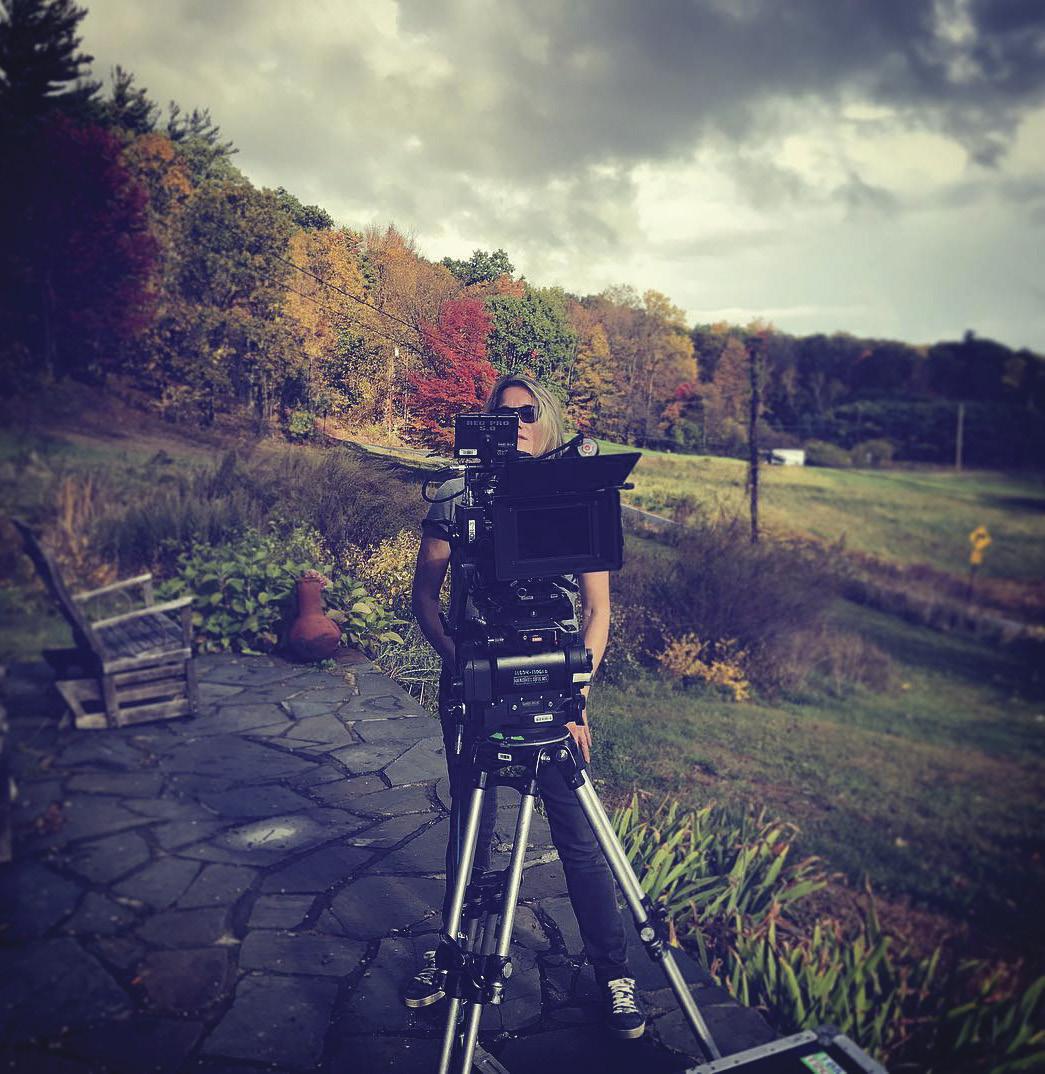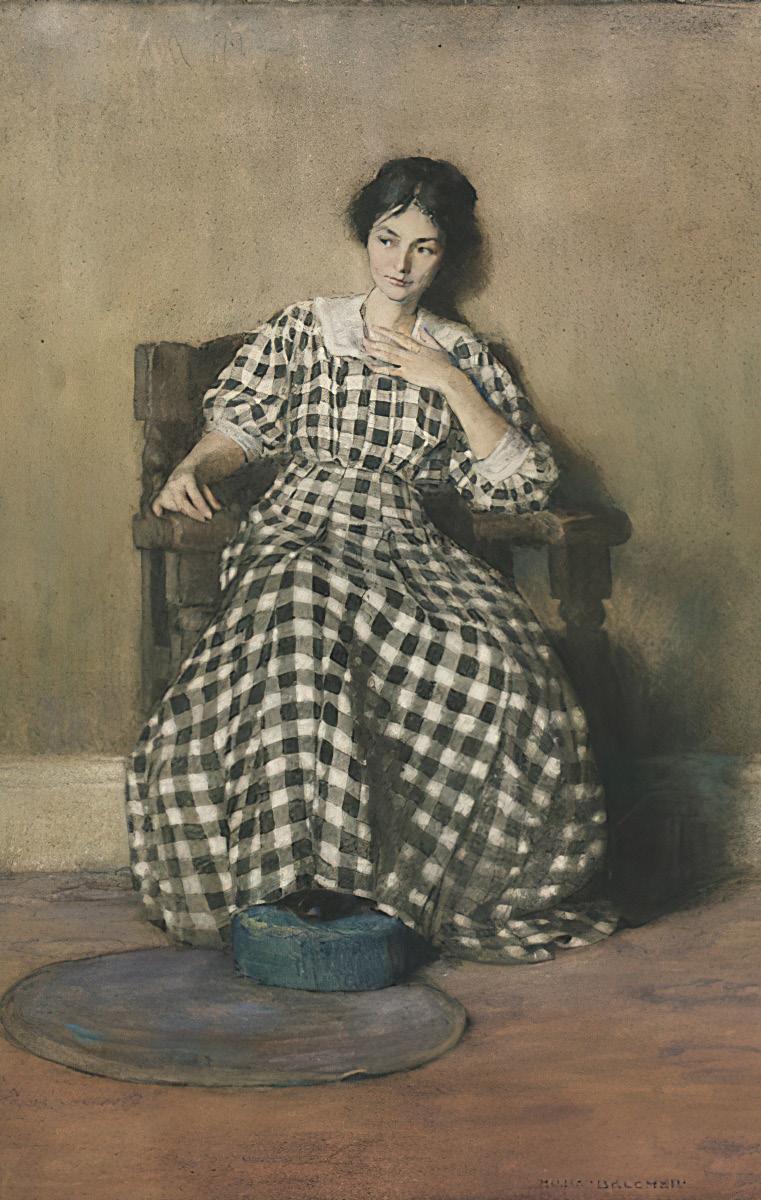
12 minute read
Mixed Media: Cultural news from around the region, including Nick Cave moving his artwork Truth Be Told from The School in Kinderhook to the Broolyn Museum; Upstate Film Founders Steve and DeDe Leiber are stepping aside after almost 50 years; Bridge Street Theatre holds winter dance residencies; Congress passes aid for concert venues; two local musicians recently died: Kali Z. Fasteau and Howard Johnson
Three Pan Goddesses, a painting by Jennifer Coates, will be exhibited at LABspace in Hillsdale as part of the group show "The Magic Garden," which runs February 20- April 11.
Welcome once again to Chronogram’s ongoing overview of area arts-related news during these politically wrought and pandemically plagued times. This month, as we anticipate brighter, safer days, we can take solace in the fact that creativity in the Hudson Valley region is non-stop, always finding new ways to survive and thrive.
Advertisement
—Peter Aaron
Upstate Films Founders Prepare to Step Aside
After 48 years of managing beloved independent movie theater Upstate Films, the business’s founders, Steve and DeDe Leiber, who established the enterprise with board president Susan Goldman, have chosen to cede control of the operation to someone else. “It was just one of those moments in the making,” says Steve about the decision. “We’ve been running it as a not-for-profit since 1972, and the pandemic really made it crystal clear to us that now was a good time to bring in new people and let them take over.” Focusing on foreign, indie, repertory, and art-house films, Upstate Films maintains two theaters, the original location on Market Street in Rhinebeck and the latterly introduced Woodstock site on Tinker Street (formerly the Tinker Street Cinema, it was reopened under the Upstate name in 2010). While temporarily closed due to COVID-19, the Upstate organization has been presenting a robust schedule online.
In the nearly five decades since Upstate Films opened, the by-film-lovers-for-film-lovers venture has screened over 4,000 movies from upward of 100 countries—including the premieres of numerous genre classics and Oscar nominees—and welcomed more than 1.5 million viewers to its screens. Among the visiting film giants who’ve brought their works to Upstate are Jim Jarmusch, Jonathan Demme, Julia Reichert, Steve Buscemi, Shirley Clarke, Ethan Hawke, Emile De Antonio, Karyn Kusama, and many others. Ralph Nader, U.N. weapons inspector Scott Ritter, Neil Gaiman, John Sayles, Natalie Merchant, Todd Haynes, Pauline Kael, and other luminaries have spoken to Upstate audiences, and Andre Gregory and Wallace Shawn performed their original play “My Dinner with Andre” at its Rhinebeck site before it was remade into the classic 1981 film by Louis Malle.
Before Upstate Films launched, which occurred in an era when neither VHS nor cable TV—let alone today’s streaming-on-demand services—was common for most households, Hudson Valley cinephiles had to travel to Manhattan to see non-mainstream offerings. The Leibers remade the local landscape for film lovers, bringing the Manhattan movie sensibility to our area, for which they deserve epic applause. But even though they’re preparing to take their bow, fear not, film buffs: Upstate Films will continue, and it’s not being taken over by some faceless multiplex chain. A national search via the community-based website Art House Convergence yielded, according to Steve, some experienced and enthusiastic new operators to assume management, and he and DeDe will stay on in an emeritus/advisory role until, at least, Upstate’s 50th anniversary in 2022. But for right now, they’re welcoming the turnover and looking forward to the vaccinations that will lead to the reopenings of most businesses.
“That will be a great day in America,” says Steve.
Howard Johnson (1941-2021) Kali Z. Fasteau (1947-2020)
The sad news came recently about the passing of two locally linked musicians.
Tuba player and multi-instrumentalist Howard Johnson died on January 1 after a long illness. Born in Montgomery, Alabama, Johnson performed with the Band on the live album Rock of Ages and at their famous 1976 farewell concert that was filmed for the movie The Last Waltz. He led the house band on “Saturday Night Live” during the 1970s and was a familiar presence before audiences at Levon Helm’s Midnight Ramble events in Woodstock as a key member of Helm’s recording and touring bands. In addition to working occasionally as an actor, he led his own groups (the best known being the tuba ensemble Gravity) and performed and recorded with Charles Mingus, Taj Mahal, Gil Evans, Hank Crawford, Rahsahn Roland Kirk, Archie Shepp, James Taylor, Jaco Pastorious, and many others.
“I treasure these profoundly transformative and indelible experiences of both the social and natural world,” multi-instrumentalist and world traveler Kali Z. Fasteau said when she was profiled in the October 2006 issue of Chronogram. “But I also discovered that we carry our thoughts with us wherever we go, so the real work on improving our heart, mind, and spirit takes place within us.” Fasteau, whose voluminous discography as a leader on her Flying Note label blurs the borders between jazz, world music, and improvised styles, worked with Joe McPhee, William Parker, Dewey Redman, Archie Shepp, Rashied Ali, her late life partner Rafael Garrett, and other leading figures of creative music. Her performance with percussionist Joakim Lartey at one of the magazine-sponsored Cafe Chronogram salon events is fondly recalled by those who there. She died at her home in Monroe on November 20.
Kicked Out of Kinderhook, Nick Cave Art Bound for Brooklyn
It seems Kinderhook’s town board can’t face the truth. At least not when it’s in letters that are 21 feet high. Groundbreaking visual artist Nick Cave’s artwork Truth Be Told, comprised of black vinyl letters that fill up an entire 160-foot side of art dealer Jack Shainman’s gallery in Kinderhook known as the School, was created and installed last year by the artist as a part of the national conversation on racial injustice that followed the murder of George Floyd by a Minneapolis policeman. It wasn’t up long, however, before Kinderhook Mayor Dale Leiser and other village leaders demanded that it be taken down, stating that the text-centric work is a sign, rather than public art, which puts it in violation of local signage codes (the board also stated that the material used for the letters is flammable, which has been refuted). After a lengthy court battle with the town, Shainman and Cave accepted an offer to move the work to the Brooklyn Museum, where it will be displayed starting on May 14. In an open letter dated January 7, Cave, who is Black, said, “I know that the town of Kinderhook is not censoring the words I’ve formed, but rather the meaning that it has assigned to them, and in turn the ability of others to have access to my provocation.” (As of press time in midJanuary, Shainman planned to take the piece down in Kinderhook at the end of January.)
Bridge Street Theatre Holds Winter Dance Residencies
Dance has returned to Catskill, despite the COVIDshuttering of the town’s high-profile, dance-oriented Lumberyard arts center. Last month the Bridge Street Theatre, although closed to live performances since March 2020, began its own four-month winter dance residencies program with virtual presentations of the Anh Vo dance company’s BABYLIFT and a work in progress by Dorrance Dance company member Jabu Graybea. The web-based series, which continues this month with a performance of SWITCH by the LayeRhythm Experiment with Mai Le Ho on February 11 at 7pm, also includes a work in progress by Thang Dao on March 12; Chroma (working title) by Adrian DanchigWaring, Norbert De La Cruz III, Joseph Gordon, Kristin Sztyk, and Virginia Wagner on March 26; and Trapped by the Passion Fruit Dance Company on April 10. All will be viewable for free via Bridgest.org.
Pandemic Recovery Assistance for Arts Venues
As of this writing we don’t know how it will happen, but we do know that it will be happening: Federal funding is coming to independent performing arts venues that have been hit the hardest by the pandemic closures. In December 2020, Congress voted to pass the Consolidated Appropriations Act, a $900 billion bipartisan economic relief package that includes the Economic Aid to Hard-Hit Small Businesses, Nonprofits, and Venues Act (AKA the Hard Hit Act), a $15 billion grant program through which the US Small Business Administration (SBA) will provide aid to struggling live performing arts venues, independent movie theatres, museums, cultural institutions, and related businesses. Also known as the Save Our Stages Act (SOS), the allotment will arrive alongside a $600 check for every American making up to $75,000 and a $300-per-week unemployment insurance enhancement for those who are currently out of work due to the pandemic, a group that includes nearly 100,000 live music professionals.
On January 12, Governor Cuomo announced the New York Arts Renewal Plan, which aims to resuscitate New York State’s shuttered arts scene. “We must act,” Cuomo said in a video address. “We cannot wait until summer to turn the lights back on and provide a living wage for artists.” ($10 million has been made available to Ulster County venues through the plan.) Also in January, NIAID Director Dr. Anthony Fauci indicated that, based on current projections, the fall 2021 return of live performances he had predicted early last year still looked plausible—as long as herd immunity is achieved by vaccinating 75 to 80 percent of the population. “If everything goes right, this will occur sometime in the fall of 2021,” said Fauci in a January 11 videoconference. “So that by the time we get to the early to mid-fall, you can have people feeling safe performing onstage as well as people in the audience… I think you can then start getting back to almost full capacity of seating. We’ll be back in the theaters—performers will be performing, audiences will be enjoying it. It will happen.”
Sarah Rich as Rosie in #Like, which was filmed in Bearsville.

A Tangled Web
SARAH PIROZEK’S FILM #LIKE
Streaming on AppleTV+

Sarah Pirozek on the set of #Like in Bearsville. British-born, New-York-based writer-director-producer Sarah Pirozek splits her time between Brooklyn and Bearsville—the latter is the moody setting for her noirfeminist, indie thriller #Like. The film—released in 2019 and shown recently at the Woodstock Film Festival, is Pirozek’s feature debut, though she’s no stranger to directing.
Since film school, Pirozek’s directed documentaries, music videos, and commercials, but always wanted to make narrative feature films. “I was put on this Earth to tell stories about women,” she tells me during our phone conversation. #Like, a step toward that, is written, directed, and produced by Pirozek. It follows Rosie (Sarah Rich), a teen mourning the first anniversary of her younger sister’s suicide, as she attempts to find the man whose online abuse led to her death. When the police refuse to help, she decides to take matters into her own hands. It’s a twist on the typical revenge film—think Denis Villeneuve’s Prisoners, with a female protagonist.
Reading about internet predation and watching Lee Hirsch’s 2011 documentary Bully made Pirozek think about how the dangers of the real world have followed kids into the virtual realm. Researching the world of online video chat communities that online predators and pedophiles frequent sowed the seeds for #Like. In the film, Rosie’s sister—who wants to be a dancer—posts videos on a site like this. She’s tricked into sharing too much, then stalked and bullied.
Pirozek wrote the script before the #MeToo hashtag took off, but it feels appropriate to the moment: It’s angry, feminist, and filled with the paranoia that comes from being surrounded by the leery male gaze, all without being too on-the-nose. “I grew up in an era where men had free rein. I mean, they’ve had free rein until recently. Do you know how many times I’ve walked around with my keys in my hands, ready to punch someone in the face if I have to?” she says, explaining how the tone of the film is inspired by encounters with this male gaze.
Devoid of cheap tricks and jump scares, the film’s a slow burn, with some uneasy but never gratuitous scenes. The strength of Pirozek’s script, including the decision to have Rosie interact with The Man (Marc Menchaca)—an unnamed person she assumes tormented her sister online—sets it apart from gardenvariety social-media thrillers.
If you recognize The Man, it’s because Marc Menchaca is a television regular, known for his roles as detective Jack Hoskins in “The Outsider” and Russ Langmore on “Ozark.” “I wrote the script with him in mind,” Pirozek says. The Man has a very limited range of physical motion in the film, an interesting challenge, and one of the reasons, she says, that Menchaca was interested in the role.
Although Pirozek isn’t into “blood and guts and gore,” #Like is every bit as unsettling as any body-horror film, if not more so, because its monsters could be any inconspicuous face in a crowd. Everything feels a little off, and Pirozek tells me this was an intentional mood she wanted the film to have, inspired by her experiences as a woman. “It’s all a little bit like the interior world of a lot of women—unless you’re with a group of friends or someone is protective of you, the world can be a little off.” From a bicycle ride around the neighborhood to Rosie’s interactions with Rory, a potential love interest (Dakota Lustick), everything is rife with potential risk.
Some of the tensest scenes occur in a bomb shelter, inspired by one on Pirozek’s property in Bearsville. “I was always looking at it and going, ‘Oh, we need to demolish or tear it down.’ But I kept not doing it—it’s so creepy,” she says, adding, “that was a big part of the inspiration for writing the script.” #Like would not have been easy to make without the folks in and around Woodstock. Laurent Rejto, who runs the Hudson Valley Film Commission, gave Pirozek invaluable advice about working in the area. Meira Blaustein, the cofounder of the Woodstock Film Festival, was incredibly supportive of the film and passionate about screening it. Then there were people who helped scout shooting locations, like Julie Beesmer (who runs Bread Alone in Woodstock). She went to high school with one of the police officers, who in turn spoke to the police chief, and helped Pirozek film the scenes in the police station for free.
“It’s so satisfying as a female filmmaker to have my first feature be a pro-feminine, feminist movie with an amazing, complicated, strong central performance by Sarah Rich,” Pirozek says. She credits the film’s success, despite its small budget, to a passionate cast and crew.
There may be more in store for #Like since she’s considering turning it into a limited series. She’s also working on a documentary called The Coffee and Cream Club, which is about interracial relationships, and serializing a film script she wrote called The Squatters Handbook, based on her real-life experiences in London.










